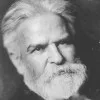When power is scarce, a little of it is tempting.
Margaret Atwood (b. 1939) Canadian writer, literary critic, environmental activist
The Handmaid’s Tale, “Historical Notes” (1986)
(Source)
On using women (the "Aunts") as collaborative enforcers of the woman-oppressing Gilead regime.
Quotations about:
betrayal
Note not all quotations have been tagged, so Search may find additional quotes on this topic.
LADY MACDUFF:When our actions do not,
Our fears do make us traitors.William Shakespeare (1564-1616) English dramatist and poet
Macbeth, Act 4, sc. 2, l. 4ff (4.2.4-5) (1606)
(Source)
Therefore ye Furies who with vengeful ire
Visit men’s deeds, whose brows with serpents crowned
Show the heart’s blast of wrath, haste hither, haste,
And listen to the words of my complaint
Forced from the depths of my unhappy heart,
O! helpless, burning, blinded, frenzied me!
But since it is God’s truth my heart reveals,
Suffer not yet my woe to come to nought,
But ev’n as Theseus left me desolate,
Such desolation whelm his life, his home.[Quare, facta virum multantes vindice poena
Eumenides, quibus anguino redimita capillo
frons exspirantis praeportat pectoris iras,
huc huc adventate, meas audite querelas,
quas ego, vae miserae, extremis proferre medullis
cogor inops, ardens, amenti caeca furore.
Quae quoniam verae nascuntur pectore ab imo,
vos nolite pati nostrum vanescere luctum,
sed quali solam Theseus me mente reliquit,
tali mente, deae, funestet seque suosque.]Catullus (c. 84 BC – c. 54 BC) Latin poet [Gaius Valerius Catullus]
Carmina # 64 “The Nuptuals of Peleus and Thetis,” ll. 193-202 [tr. MacNaghten (1925)]
(Source)
Ariadne's curse on Theseus, who abandoned her on a desert island after she eloped with him.
(Source (Latin)). Alternate translations:And you, Eumenides, with snaky hair,
Who for men's crimes due chastisements prepare;
Whose inward rage sits pictur'd on your brows;
O, hither come, and listen to my woes!
Woes pour'd in torture from my inmost soul,
Where burning phrenzy, and wild tumult roll!
Rack'd is this breast with no fictitious pain;
Then hear my pray'r, just maids, nor hear in vain!
And grant that Theseus, and his race may share
Such fate accurst, as now I'm doom'd to bear!
[tr. Nott (1795)]Ye, who avenge their crimes on all mankind,
Furies, whose hair with angry snakes entwined
Paint on the threatening brow the hell-born breast,
Haste, hither haste, and hear my fell request.
'Tis helpless frenzy, senseless, blind despair;
Teach me, 'tis all that's left, my frantic prayer;
Rend from my secret heart each cold restraint,
And pour forth all my soul in my complaint.
Since then it warmly flows from heartfelt pain,
Let me not speak my rage, my grief in vain;
But grant, that still the reckless, ruthless mind
Which made him fly, and leave a wretch behind,
May guide, may urge his life with headlong pace,
Till Theseus curse alike himself and all his race
[tr. Lamb (1821)]Come ye that wreak on man his guilt with retribution dire,
Ye maids, whose snake-wreathed brows bespeak your bosoms' vengeful ire!
Come ye , and hearken to the curse which I, of sense forlorn,
Hurl from the ruins of a heart with mighty anguish torn!
Though there be fury in my words, and madness in my brain,
Let not my cry of woe and wrong assail your ears in vain!
Urge the false heart that left me here still on with head long chase
From ill to worse, till Theseus curse himself and all his race!
[tr. T. Martin (1861)]Ye powers ! who to the crimes of men dire chastisement assign;
Eumenides! around whose heads the snaky ringlets twine;
Whose brows portray the hellish wrath that rankles in your breast;
Oh! hither, hither haste, and list to this the sad request
Which from my inmost soul, alas! to misery consigned,
I'm forced to pour -- a helpless wretch, with burning madness blind;
And since even from my bosom's depths these bursts of anguish stream,
Oh, doom them not to vanish like an airy, idle dream,
But let him in that soul, in which he has abandon'd me,
Bring on himself and all his race death and black infamy.
[tr. Cranstoun (1867)]Then, O sworn to requite man's evil wrathfully, Powers
Gracious, on whose grim brows, with viper tresses inorbed,
Looks red-breathing forth your bosom's feverous anger;
Now, yea now come surely, to these loud miseries harken,
All I cry, the afflicted, of inmost marrow arising,
Desolate, hot with pain, with blinding fury bewilder'd.
Yet, for of heart they spring, grief's children truly begotten,
Verily, Gods, these moans you will not idly to perish.
But with counsel of evil as he forsook me deceiving,
Death to his house, to his heart, bring also counsel of evil.
[tr. Ellis (1871)]Therefore, O you who 'venge man's deed with penalties direful,
Eumenides! aye wont to bind with viperous hairlocks
Foreheads, -- Oh, deign outspeak fierce wrath from bosom outbreathing,
Hither, Oh hither, speed, and lend you all ear to my grievance,
Which now sad I (alas!) outpour from innermost vitals
Maugre my will, sans help, blind, fired with furious madness.
And, as indeed all spring from veriest core of my bosom,
Suffer you not the cause of grief and woe to evanish;
But with the Will wherewith could Theseus leave me in loneness,
Goddesses! bid that Will lead him, lead his, to destruction.
[tr. Burton (1893)]Wherefore you requiters of men's deeds with avenging pains, O Eumenides, whose front enwreathed with serpent-locks blazons the wrath exhaled from your bosom, come here, here, listen to my complaint, which I, sad wretch, am urged to outpour from my innermost marrow, helpless, burning, and blind with frenzied fury. And since in truth they spring from the very depths of my heart, be unwilling to allow my agony to pass unheeded, but with such mind as Theseus forsook me, with like mind, O goddesses, may he bring evil on himself and on his kin.
[tr. Smithers (1894)]Therefore , O ye that visit the deeds of men with vengeful pains, ye Eumenides, whose foreheads bound with snaky hair bear on their front the wrath which breathes from your breast, hither, hither haste, hear my complaints which I ( ah , unhappy!) utter from my inmost heart perforce, helpless, burning, blinded with raging frenzy. For since my woes come truthfully from the depths of my heart, suffer not ye my grief to come to nothing but even as Theseus left me desolate, so, goddesses, may he bring ruin on himself and his own!
[tr. Warre Cornish (1904)]Wherefore, ye Furies, ye who on men's sin
Due punishment inflict, whose very hair
In viper's form reveals the rage within,
Hither in judgment come and hear my prayer;
The only outlet for my helpless wrath,
As blind with rage I burn and pour it forth.
And as I launch my curses from my soul,
I charge you guard them till they reach their goal;
God grant the shallow heart that left me here
Bring death on those that Theseus holds most dear.
[tr. Symons-Jeune (1923)]Ye, then, who vindicate their deeds of shame
On guilty men; whose vengeance-breathing breast
Speaks in the snaky hair, the withering flame:
Come, Furies, come! Give ear to the request
An injured woman makes, with maddening woe oppressed.
Since forced by sad misfortune I complain;
Since deep and true the sorrows that I bear;
Ah, let not my petition be in vain!
Let the vile author of my misery share
As sad a fate, as gloomy a despair,
As brought his cruel deed on wretched me!
[tr. Wright (1926)]Hear me gods whose antiquity flows backward beyond the time of man, whose vengeance falls on all, O wake again
with snakes circling your foreheads and now releasing rivers of blood pouring from sightless eyes,
make these the signals of the anger (red coals in your breasts) that brings you out of the forgotten
womb of time. Hear what I say, look at my heart, wrapped round with flames, my soul in madness, O remember
these last words spoken from my heart, O gods! And as Theseus has now forgotten me, make him a stranger
to his own soul, so that the architecture of his mind falls to ruin.
[tr. Gregory (1931)]O Furies, charged with vengeance that punishes evil,
you whose bleak foreheads are girded with writhing serpents
which clearly display the outrage yo7ur cold hearts keep hidden,
come here to me quickly, listen to my lamentation,
which I deliver in pain from the depths of my passion,
unwilling forced to, afire, blinded with madness!
-- Since what I say is the truth, since I say it sincerely,
do not allow my lament to fade with out issue:
but just as Theseus carelessly left me to die here,
may that same carelessness ruin him and his dearest!
[tr. C. Martin (1979)]Therefore, you that punish with avenging price men's crimes,
Furies, Eumenides, whose brows, bound with serpents for tresses,
announce the rages of your panting chests,
Be here! Be here! Respond to my complaints
which I -- pitiful I -- am forced to bring out from my very bones,
helpless, burning, blind with mindless rage.
Since those are true-born from my deepest heart,
do not allow my suffering to gutter out.
Goddesses, may the same intent that left me behind, alone,
defile Theseus himself and his own with death.
[tr. Banks (1997)]So you Eumenides who punish by avenging
the crimes of men, your foreheads crowned
with snaky hair, bearing anger in your breath,
here, here, come to me, listen to my complaints,
that I, wretched alas, force, weakened, burning,
out of the marrow of my bones, blind with mad rage.
Since these truths are born in the depths of my breast,
you won’t allow my lament to pass you by,
but as Theseus left me alone, through his intent,
goddesses, by that will, pursue him and his with murder.
[tr. Kline (2001)]So, you whose vengeful exactions answer men's crimes, you Furies whose snake-wreathed brows announce the wrath gusting up from your secret hearts, I summon you here to me now: give ear to the complaints which I in my misery am forced to dredge up from the inmost core of my being -- helpless, burning, blinded by mindless frenzy. But since they're the true products of my private heart, don't let my grief all go for nothing; rather in just such a mood as Theseus abandoned me to my lonely fate, let him, goddesses, now doom both himnself and his!
[tr. Green (2005)]Wherefore, Eumenides, punishing the deeds of men with avenging penalty,
to whom the forehead having been encircled with snaky hair
carries forth angers breathing out of the chest,
here come here, hear my complaints,
which I , alas wretched, have been compelled to bring forth
from the bottom marrows helpless, burning, blind with crazy fury.
Since such things are being born from the deepest chest,
you don't suffer our grief to wane,
but with what type of mind Theseus left me alone,
let him pollute both himself and his own with death, goddesses
[tr. Wikisource (2018)]
Then let no woman hence in man believe,
Or think a lover speaks but to deceive.
He, while ungratified desire is high,
Shrinks from no oath, no promise will deny;
Soon as his lust is satiate with its prize,
He spurns his vows and perjury’s curse defies.
[Nunc iam nulla viro iuranti femina credat,
nulla viri speret sermones esse fideles;
quis dum aliquid cupiens animus praegestit apisci,
nil metuunt iurare, nihil promittere parcunt:
sed simul ac cupidae mentis satiata libido est,
dicta nihil metuere, nihil periuria curant.]Catullus (c. 84 BC – c. 54 BC) Latin poet [Gaius Valerius Catullus]
Carmina # 64 “The Nuptuals of Peleus and Thetis,” ll. 144-149 [tr. Lamb (1821)]
(Source)
Ariadne lamenting Theseus' faithlessness.
(Source (Latin)). Alternate translations:Hear this, and wisdom learn, ye witless fair!
Ne'er let false man with empty oaths deceive,
No protestations of the sex believe!
Is there a wish their ardent souls would gain;
they swear, they promise, and at length obtain;
The wish obtain'd, they fearless break their word,
Nor plighted faith, nor solemn vows regard.
[tr. Nott (1795), # 61; ll. 173ff.]Henceforth let woman; never trust the oaths that man shall make,
Nor ever more his honeyed speech within her bosom take!
While yet the fire of his desire is hot within his breast,
What will he not to woman swear, to heav'n what not protest?
But let her in an evil hour resign her maiden trust,
And yield the blossom of her youth to sate his selfish lust,
Then what recks he of lavish oath, or vow, or whisper'd pray'r?
He triumphs in his perjuries, and spurns at her despair.
[tr. T. Martin (1861)]Henceforth let never woman trust an oath than man shall swear,
Nor count the tender speeches true his lying lips declare:
For when with lusting soul he yearns some object to enjoy,
No oath, no promise then he deems too sacred to employ;
But when his soul is sated, and his burning passion dies,
He fears to break no plighted vows, cares nought for perjuries.
[tr. Cranstoun (1867)]Let not a woman trust, since that first treason, a lover's
Desperate oath, none hope true lover's promise is earnest.
They, while fondly to win their amorous humour essayeth,
Fear no covetous oath, all false free promises heed not;
They if once lewd pleasure attain unruly possession,
Lo they fear not promise, of oath or perjury reck not.
[tr. Ellis (1871)]Now, let woman no more trust her to man when he sweareth,
Ne'er let her hope to find or truth or faith in his pleadings,
Who when lustful thought forelooks to somewhat attaining,
Never an oath they fear, shall spare no promise to promise.
Yet no sooner they sate all lewdness and lecherous fancy,
Nothing remember of words and reck they naught of fore-swearing.
[tr. Burton (1893)]Now, now, let no woman give credence to man's oath, let none hope for faithful vows from mankind; for while their eager desire strives for its end, nothing fear they to swear, nothing of promises forbear they: but instantly their lusting thoughts are satiate with lewdness, nothing of speech they remember, nothing of perjuries care.
[tr. Smithers (1894)]Henceforth let no woman believe a man's oath, let none believe that a man's speeches can be trustworthy. They, while their mind desires something and longs eagerly to gain it, nothing fear to swear, nothing spare to promise; but as soon as the lust of their greedy mind is satisfied, they fear not then their words, they heed not their perjuries.
[tr. Warre Cornish (1904)]Hereafter let; no woman trust man's promises, or hope for faithful words; for when they wish to attain their desires, there is nothing they will not swear, no promise do they scruple to make: but once their desires have been satisfied, they fear no broken words and care nothing for their perjuries.
[tr. Stuttaford (1912)]Never let maid believe a lover's oath;
Nor hope a man be faithful to his troth;
Long as men's hearts are spurred by keen desire,
No oath they shrink from and no promise spare;
Soon as their sated lust begins to tire
No oath they heed and nought for falsehood care.
[tr. Symons-Jeune (1923)]Henceforth, no woman trust the oath of man,
No woman dream the word of man is true:
They, whensoe'er they lust for anything,
Swear every oath and every promise make,
But, when their eager lust is satisfied,
Nor reck of oaths nor promises regard.
[tr. MacNaghten (1925)]Henceforth let never listening maid believe
Protesting man! When their false hearts conceive
The selfish wish, to all but pleasure blind,
No words they spare, no oaths unuttered leave.
But when possession cloys their pampered mind,
No care have they for oaths, no words their honour bind.
[tr. Wright (1926)]From this hour
may no woman believe what men say, for men (minds set upon a single end) will promise everything,
but once the shrewd mind satisfies its passion, it plunges forward (the broken promise merely words that trail behind tall bravery).
[tr. Gregory (1931)]Let no woman ever believe any oath that a man swears,
or ever expect him to keep faith with his fine speeches!
When they want something, when they are anxious to get it,
they take oaths without fear, and pour out promises freely;
but just as soon as their hot desire is sated,
none of their lies & deceptions ever disturb them.
[tr. C. Martin (1979)]From now on let no woman believe a man's sworn promises.
From now on let no woman hope a man's talk is true.
So long as their desiring minds are eager to get something,
they swear to anything. No promise do they spare.
But as soon as the lust in their desirous intent is gratified,
they remember nothing they said, they care nothing for their lies.
[tr. Banks (1997)]Now, no woman should believe a man’s pledges,
or believe there’s any truth in a man’s words:
when their minds are intent on their desire,
they have no fear of oaths, don’t spare their promises:
but as soon as the lust of their eager mind is slaked
they fear no words, they care nothing for perjury.
[tr. Kline (2001)]Henceforth let no woman trust a man's sworn promise,
or hope that he'll ever be true to his given word,
for as long as his lustful heart is bent on possession
he'll shrink from no oath, stop short at no promises,
but the moment hte urge of his ardent mind is sated
he forgets all he's said, breaks oaths without a tremor.
[tr. Green (2005)]Now already let no woman trust a man swearing,
let none hope that the speeches of man are faithful,
for whom while the desiring mind is eager to grasp something,
They fear to swear nothing, they spare to promise nothing.
But as soon as the lust of the desiring mind has been satisfied,
They feared the words as nothing, they care for the false oaths not at all.
[tr. Wikisource (2018)]
BANQUO: And oftentimes, to win us to our harm,
The instruments of darkness tell us truths,
Win us with honest trifles, to betray ’s
In deepest consequence.William Shakespeare (1564-1616) English dramatist and poet
Macbeth, Act 1, sc. 3, l. 135ff (1.3.135-138) (1606)
(Source)
Speaking to Macbeth of the Weïrd Sisters (witches).
That man must be everyone’s personal enemy who has behaved like a public enemy to his own friends. No wise man ever felt that a traitor ought to be trusted.
[Omnium est communis inimicus qui fuit hostis suorum. Nemo umquam sapiens proditori credendum putavit.]
Marcus Tullius Cicero (106-43 BC) Roman orator, statesman, philosopher
In Verrem [Against Verres; Verrine Orations], Action 2, Book 1, ch. 15 / sec. 38 (1.15.38) (70 BC) [tr. Greenwood (1928)]
(Source)
(Source (Latin)). Alternate translations:He is the common enemy of all men who has once been the enemy of his own connections. No wise man ever thought that a traitor was to be trusted
[tr. Yonge (1903)]He is a common enemy who has been a foe to his own people. No man of sense has ever considreed a traitor worthy of credence.
[ed. Harbottle (1906)]
BALTHAZAR: Sigh no more, ladies, sigh no more,
Men were deceivers ever,
One foot in sea and one on shore,
To one thing constant never.
Then sigh not so, but let them go,
And be you blithe and bonny,
Converting all your sounds of woe
Into Hey, nonny nonny.William Shakespeare (1564-1616) English dramatist and poet
Much Ado About Nothing, Act 2, sc. 3, l. 64ff (2.3.64-71) (1598)
"Hey, nonny nonny" was a nonsense refrain popular in English music during the Elizabethan era; in context here, it means stop grieving over the guy that dumped you and put that effort instead into some merry-making and song. Music historian Ross Duffin believes the form of Balthazar's tune fits a popular song of the Tudor period, "The Lusty Gallant."
ANNAS: Your help in this matter won’t go unrewarded.
CAIAPHAS: We’ll pay you in silver — cash on the nail.
We just need to know where the soldiers can find him.ANNAS: With no crowd around him.
CAIAPHAS:Then we can’t fail.
JUDAS: I don’t need your blood money!
CAIAPHAS: Oh, that doesn’t matter, our expenses are good.
JUDAS: I don’t want your blood money!
ANNAS: But you might as well take it. We think that you should.
CAIAPHAS: Think of the things you could do with that money,
Choose any charity — give to the poor.
We’ve noted your motives — we’ve noted your feelings.
This isn’t blood money — it’s a fee, nothing —
Fee, nothing — fee, nothing more.Tim Rice (b. 1944) British lyricist and author
Jesus Christ Superstar, “Blood Money” (1970) [music by Andrew Lloyd Webber]
(Source)
(Source (audio))
The movie version reverses the order of "need" and "want your blood money." It also turns the last lines into a brief interchange between Caiaphas and Annas:CAIAPHAS: This isn't isn't blood money -- it's ...
ANNAS: A fee.
CAIAPHAS: A fee, nothing more.
For narcissists, setbacks are not opportunities to learn; they’re problems caused by somebody else who got in their way or sabotaged their plans.
Jeffrey Kluger (b. 1954) American journalist, author
The Narcissist Next Door, ch. 1 (2014)
(Source)
That’s life: Trust and you’re betrayed; don’t trust and you betray yourself.
Hear now the treachery of the Greeks and from one learn the wickedness of all.
[Accipe nunc Danaum insidias, et crimine ab uno
Disce omnes.]Virgil (70-19 BC) Roman poet [b. Publius Vergilius Maro; also Vergil]
The Aeneid [Ænē̆is], Book 2, l. 65ff (2.65-66) [Aeneas] (29-19 BC) [tr. Fairclough (1916)]
(Source)
Regarding Sinon, who posed as a Greek refugee and persuaded the Trojans that the Trojan Horse was harmless. (Source (Latin)). Alternate translations:Receive Greeks treacheries now; and from one crime
Learn all.
[tr. Ogilby (1649)]Now hear how well the Greeks their wiles disguis'd;
Behold a nation in a man compris'd.
[tr. Dryden (1697)]Now learn the treachery of the Greeks, and from one crime take a specimen of the whole nation.
[tr. Davidson/Buckley (1854), "Literally, 'from one of their tricks learn what they all are.'"]Now listen while my tongue declares
The tale you ask of Danaan snares,
And gather from a single charge
Their catalogue of crimes at large.
[tr. Conington (1866)]Now
Hear what the treachery of the Grecians was,
And from one crime learn all.
[tr. Cranch (1872), l. 89ff]Know now the treachery of the Grecians, and from a single crime learn all.
[tr. Mackail (1885)]Lo now, behold the Danaan guile, and from one wrong they wrought
Learn ye what all are like to be.
[tr. Morris (1900)]Mark now the Danaans' cunning; from one wrong
Learn all.
[tr. Taylor (1907), st. 10, ll. 82-83]Hear now what Greek deception is, and learn
from one dark wickedness the whole.
[tr. Williams (1910)]Listen, and learn Greek trickiness; learn all
Their crimes from one.
[tr. Humphries (1951)]Now hear how the Greeks tricked us; learn from one case of their wickedness
What every Greek is like.
[tr. Day Lewis (1952)]Now listen to the treachery of the Danaans
and learn from one the wickedness of all.
[tr. Mandelbaum (1971), ll. 92-93]Be instructed now
In Greek deceptive arts: one barefaced deed
Can tell you of them all.
[tr. Fitzgerald (1981), l.91ff]Listen now to this story of Greek treachery, and from this one indictment, learn the ways of a whole people.
[tr. West (1990)]Listen now to Greek treachery, and learn of all their crimes
from just this one.
[tr. Kline (2002)]Hear now
The treachery of the Greeks, and from one offense
Learn all their evil.
[tr. Lombardo (2005)]Now, hear the treachery of the Greeks and learn
from a single crime the nature of the beast.
[tr. Fagles (2006)]Now hear how the Greeks baited their trap, and from one act of treachery, understand them all!
[tr. Bartsch (2021)]
Women just can’t be trusted any more.
[Ἐπεὶ οὐκέτι πιστὰ γυναιξίν.]
Homer (fl. 7th-8th C. BC) Greek author
The Odyssey [Ὀδύσσεια], Book 11, l. 456 (11.456) [Agamemnon] (c. 700 BC) [tr. Lombardo (2000), l. 274]
(Source)
Agamemnon, who was slain on his homecoming by Clytemnestra, is giving Odysseus marital advice when the latter visits Hades. Original Greek. Alternate translations:
- "For ’tis no world to trust a woman now." [tr. Chapman (1616)]
- "Remember still, women unfaithful are." [tr. Hobbes (1675)]
- "For since of womankind so few are just, / Think all are false, nor even the faithful trust." [tr. Pope (1725)]
- "For woman merits trust no more." [tr. Cowper (1792), l. 453]
- "No more are women to be trusted now." [tr. Worsley (1861), st. 54]
- "For that trust / Henceforth in women must never be plac'd." [tr. Musgrave (1869), l. 706ff]
- "No trust in women!" [tr. Bigge-Wither (1869), l. 455]
- "For there is no more faith in woman." [tr. Butcher/Lang (1879) and Palmer (1891)]
- "From now henceforth in women no troth or trust shall be." [tr. Morris (1887)]
- "For after all this there is no trusting women." [tr. Butler (1898)]
- "For no longer is there faith in women." [tr. Murray (1919)]
- "There is no putting faith in women." [tr. Lawrence (1932)]
- "Women, I tell you, are no longer to be trusted." [tr. Rieu (1946) and DCH Rieu (2002)]
- "There is no trusting in women." [tr. Lattimore (1965)]
- "No woman merits trust." [tr. Mandelbaum (1990)]
- "The time for trusting women's gone forever!" [tr. Fagles (1996), l. 456]
- "Women are no longer to be trusted." [tr. Verity (2016)]
- "No more is there faith in women." [tr. Green (2018)]
- "For there’s no trust / in women anymore." [tr. Johnston (2019), l. 577ff]
But the modern right wing, as Daniel Bell has put it, feels dispossessed: America has been largely taken away from them and their kind, though they are determined to try to repossess it and to prevent the final destructive act of subversion. The old American virtues have already been eaten away by cosmopolitans and intellectuals; the old competitive capitalism has been gradually undermined by socialistic and communistic schemers; the old national security and independence have been destroyed by treasonous plots, having as their most powerful agents not merely outsiders and foreigners as of old but major statesmen who are at the very centers of American power. Their predecessors had discovered conspiracies; the modern radical right finds conspiracy to be betrayal from on high.
Richard Hofstadter (1916-1970) American historian and intellectual
“The Paranoid Style in American Politics,” Herbert Spencer Lecture, Oxford (Nov 1963)
(Source)
Reprinted in Harpers (Nov 1964).
Treason is merely a question of dates.
Charles Maurice, Prince de Talleyrand-Périgord (1754-1838) French statesman
Comment to Tsar Alexander (1815)
(Source)
Variant: "Treason is merely a matter of dates."
Both versions of the line are quoted in different biographies of Talleyrand, apparently derived from a passage in his Memoirs (ed. Albert de Broglie, tr. De Beaufort (1891)). He relates while at the Congress of Vienna (1814-15), Tsar Alexander referred to Saxony as "Those who betrayed the cause of Europe" for joining with Napoleon, to which Talleyrand replied (mindful that Alexander had at times been allied with Napoleon), "Sire, that is a question of dates."
In the movie Die Hard 2 (1990), the quote is misattributed to Cardinal Richelieu in Alexandre Dumas, The Three Musketeers (1844). Variants on the line actually have been used in movie editions of Dumas' The Count of Monte Cristo (but not in the actual book).
He [the pseudo-conservative] sees his own country as being so weak that it is constantly about to fall victim to subversion; and yet he feels that it is so all-powerful that any failure it may experience in getting its own way in the world … cannot possibly be due to its limitations but must be attributed to its having been betrayed.
Richard Hofstadter (1916-1970) American historian and intellectual
“The Pseudo-Conservative Revolt” (1954)
(Source)
[A man who] counts the pain of the state as his own glory; as if, indeed, your consulate were not the reason for that conspiracy and through which the republic was torn apart when it possessed you as its protector.”
[… qui civitatis incommodum in gloriam suam ponit. Quasi vero non illius coniurationis causa fuerit consulatus tuus et idcirco res publica disiecta eo tempore quo te custodem habebat.]
Sallust (c. 86-35 BC) Roman historian and politician [Gaius Sallustius Crispus]
Invectiva in Ciceronem [Invective Against Cicero], sec. 3 [tr. @setentiq (2020)] (Spurious)
(Source)
In reference to the Catiline conspiracy. Most scholars believe this was not Sallust's work, but that of a 1st Century rhetorician, likely the one who penned the provoking Invective against Sallust, ostensibly by Cicero.
Alt. trans.:
- "[He] who caused the state injury to augment his own glory. As though your consulship were not the cause of that conspiracy! That is the reason the state was torn apart at that time with you as its guardian." [tr. Novokhatko (2009)]
- "[A] man who makes disaster to his country the means of his own glorification, was sent as a protector to this city and its citizens, and not as its executioner. As if, forsooth, your consulship was not the cause of that conspiracy, and as if the reason why the commonwealth was not rent asunder at that time was because it had you for a protector." [tr. Loeb ed. (1921), sec. 2]
What is betrayal? They talk of a man betraying his country, his friends, his sweetheart. There must be a moral bond first. All a man can betray is his conscience.
Joseph Conrad (1857-1924) Polish-English novelist [b. Teodor Josef Konrad Korzeniowski]
Under Western Eyes, Part 1, ch. 2 (1911)
(Source)
ALCESTE: This is a subject on which, no matter what is learned, doubts are more cruel than the worst of truths.
[Mais sur ce sujet quoi que l’on nous expose,
Les doutes sont fâcheux plus que toute autre chose.]Molière (1622-1673) French playwright, actor [stage name for Jean-Baptiste Poquelin]
Le Misanthrope, Act 3, sc. 7 (1666) [tr. Wormeley (1894)]
(Source)
On being told by Arsinoé that he is betrayed by Célimène.
(Source (French)). Alternate translations:But whatever may be openly said on this subject is not half so annoying as hints thrown out.
[tr. Van Laun (1878), 3.7]But on this subject, whatever we may be told, doubts are of all things the most tormenting.
[tr. Mathew (1890) 3.4]But whatever we may be told on this subject is not half so disturbing as hints and innuendoes.
[tr. Waller (1903), 3.5]In such a case, whatever we may learn,
Doubts are more torturing than any truth.
[tr. Page (1913), 3.7]Madam, you know that doubt and vague suspicion
Are painful to a man in my position.
[tr. Wilbur (1954), 3.7]No matter what one says on such a theme,
It's doubt which is the most distressing thing.
[tr. Bishop (1957)]Whatever we are told in this domain,
Doubt is the thing that gives the greatest pain.
[tr. Frame (1967), 3.5]
Treachery and violence are spears pointed at both ends — they wound those who resort to them worse than their enemies.
Emily Brontë (1818-1848) British novelist, poet [pseud. Ellis Bell]
Wuthering Heights, ch. 17 [Isabella Linton] (1847)
(Source)
We do not easily think ill of those whom we love most, and the taint of suspicion cannot exist along with warm affection.
[Non enim facile de his quos plurimum diligimus turpitudinem suspicamur, nec in vehementi dilectione turpis suspitionis labes potest inesse.]
Peter Abelard (1079-1142) French philosopher, theologian, logician [Pierre Abélard]
Historia Calamitatum Mearum [The Story of My Misfortunes], ch. 6 (1132) [tr. Radice (1974)]
(Source)
On how Heloise' uncle, Fulbert, had no suspicion of her romantic relationship with Abelard.
(Source (Latin)). Alternate translation:Indeed we do not easily suspect shame in those whom we most cherish, nor can there be the blot of foul suspicion on devoted love.
[tr. Bellows (1922)]
The first half of the sentence is most commonly quoted. Other variants include:
- "For it is not easy to suspect vileness in those whom we love most."
- "For we do not easily expect evil of those whom we love most."
Under a tyranny, most friends are a liability. One quarter of them turn “reasonable” and become your enemies, one quarter are afraid to speak, and one quarter are killed and you die with them. But the blessed final quarter keep you alive.
MAL: How come you didn’t turn on me, Jayne?
JAYNE: Money wasn’t good enough.
MAL: What happens when it is?
JAYNE: Well, that’ll be an interesting day.
MAL: I imagine it will.
[Wash is at his station on the bridge, playing with plastic dinosaurs.]
WASH [as Stegosaur]: Yes … yes, this is a fertile land, and we will thrive. We will rule over all this land, and we will call it … This Land.
WASH [as Allosaur]: I think we should call it … your grave!
WASH [as Stegosaur]: Ah! Curse your sudden but inevitable betrayal!
WASH [as Allosaur]: Ha ha ha! Mine is an evil laugh! Now DIE!
WASH [as Stegosaur]: Oh no, God, oh dear God in Heaven …
ANTONY: Through this the well-belovèd Brutus stabbed,
And, as he plucked his cursèd steel away,
Mark how the blood of Caesar followed it,
As rushing out of doors to be resolved
If Brutus so unkindly knocked or no;
For Brutus, as you know, was Caesar’s angel.
Judge, O you gods, how dearly Caesar loved him!
This was the most unkindest cut of all.William Shakespeare (1564-1616) English dramatist and poet
Julius Caesar, Act 3, sc. 2, l. 188ff (3.2.188-195) (1599)
(Source)
The cruelest lies are often told in silence. A man may have sat in a room for hours and not opened his teeth, and yet come out of that room a disloyal friend or a vile calumniator.
Robert Louis Stevenson (1850-1894) Scottish essayist, novelist, poet
Virginibus Puerisque, “Virginibus Puerisque,” sec. 4 (1881)
(Source)
The most perfidious way of damaging a cause is deliberately to defend it with faulty arguments.
[Die perfideste Art, einer Sache zu schaden ist, sie absichtlich mit fehlerhaften Gründen vertheidigen.]
Friedrich Nietzsche (1844-1900) German philosopher and poet
The Gay Science [Die fröhliche Wissenschaft], Book 3, § 191 (1882) [tr. Nauckhoff (2001)]
(Source)
Also known as La Gaya Scienza, The Joyful Wisdom, or The Joyous Science.
(Source (German)). Alternate translations:The most perfidious manner of injuring a cause is to vindicate it intentionally with fallacious arguments.
[tr. Common (1911)]The most perfidious way of harming a cause consists of defending it deliberately with faulty arguments.
[tr. Kaufmann (1974)]One injures a cause in the most perfidious manner by deliberately defending it with erroneous reasons.
[tr. Hill (2018)]
I am not willing, now or in the future, to bring bad trouble to people who, in my past association with them, were completely innocent of any talk or any action that was disloyal or subversive. I do not like subversion or disloyalty in any form and if I had ever seen any I would have considered it my duty to have reported it to the proper authorities. But to hurt innocent people whom I knew many years ago in order to save myself is, to me, inhuman and indecent and dishonorable. I cannot and will not cut my conscience to fit this year’s fashions, even though I long ago came to the conclusion that I was not a political person and could have no comfortable place in any political group.
Lillian Hellman (1905-1984) American playwright, screenwriter
Letter to Rep. John S. Wood, House Committee on Un-American Activities (19 May 1952)
(Source)
National Archives copy. Reprinted in The Nation (31 May 1952).
In the letter Hellman offers to come before the committee and talk of her own life and beliefs, but not if she could then be compelled to "name names" of others. As a result of the letter and her invoking the Fifth Amendment at the HUAC hearings, Hellman was put on the Hollywood Blacklist for the rest of the decade.
I hate the idea of causes, and if I had to choose between betraying my country and betraying my friend, I hope I should have the guts to betray my country.
E. M. Forster (1879-1970) English novelist, essayist, critic, librettist [Edward Morgan Forster]
“What I Believe,” The Nation (16 Jul 1938)
(Source)
Sometimes misquoted as: "If I had to choose between betraying my country and betraying my friend, I hope I should have the decency to betray my country."
Never regard something as doing you good if it makes you betray a trust, or lose your sense of shame, or makes you show hatred, suspicion, ill will, or hypocrisy, or a desire for things best done behind closed doors.
[Μὴ τιμήσῃς ποτὲ ὡς συμφέρον σεαυτοῦ, ὃ ἀναγκάσει σέ ποτε τὴν πίστιν παραβῆναι, τὴν αἰδῶ ἐγκαταλιπεῖν, μισῆσαί τινα, ὑποπτεῦσαι, καταράσασθαι, ὑποκρίνασθαι, ἐπιθυμῆσαί τινος τοίχων καὶ παραπετασμάτων δεομένου.]
Marcus Aurelius (AD 121-180) Roman emperor (161-180), Stoic philosopher
Meditations [To Himself; Τὰ εἰς ἑαυτόν], Book 3, ch. 7 (3.7) [tr. Hays (2003)]
(Source)
(Source (Greek)). Alternate translations:Never esteem of anything as profitable, which shall ever constrain thee either to break thy faith, or to lose thy modesty; to hate any man, to suspect, to curse, to dissemble, to lust after anything, that requireth the secret of walls or veils.
[tr. Casaubon (1634), ch. 8]Don't be fond of any Thing, or think that for your Interest, which makes you break your Word, quit your Modesty, be of a Dissembling, Suspicious, or Outragious Humour; which puts you upon Hating any Person, and enclines you to any Practice, which wont bear the Light, and look the World in the Face.
[tr. Collier (1701)]Never value that as advantageous, which may force you to break your faith; to quit your modesty, or sense of honour; to hate, suspect, or imprecate evil on any one; to dissemble; or to desire any of these things which need walls or curtains to conceal them.
[tr. Hutcheson/Moor (1742)]Never adopt any measure as conducing to your interest, which lays you under a necessity of violating your honour or your modesty; or may excite your hatred or your suspicion, or provoke you to execrate any one, or to practice dissimulation; or, in short, to entertain a wish which will not bear the light, but must be concealed from the world by walls and curtains.
[tr. Graves (1792)]Never value anything as profitable to thyself which shall compel thee to break thy promise, to lose thy self-respect, to hate any man, to suspect, to curse, to act the hypocrite, to desire anything which needs walls and curtains.
[tr. Long (1862)]Think nothing for your interest which makes you break your word, quit your modesty, hate, suspect, or curse any person, or inclines you to any practice which will not bear the light and look the world in the face.
[tr. Collier/Zimmern (1887)]Never esteem anything as of advantage to thee that shall make thee break thy word or lose thy self-respect.
[tr. Morgan, in Bartlett's (1894)]Never prize anything as self-advantage, which will compel you to break faith, to forfeit self-respect, to suspect or hate or execrate another, to play false, to desire anything which requires screens or veils.
[tr. Rendall (1898)]Never esteem aught of advantage which will oblige you to break your faith, or to desert your honour; to hate, to suspect, or to execrate any man; to play a part; or to set your mind on anything that needs to be hidden by wall or curtain.
[tr. Hutcheson/Chrystal (1902)]Prize not anything as being to thine interest that shall ever force thee to break thy troth, to surrender thine honour, to hate, suspect, or curse anyone, to play the hypocrite, to lust after anything that needs walls and curtains.
[tr. Haines (Loeb) (1916)]Never value as an advantage to yourself what will force you one day to break your word, to abandon self-respect, to hate, suspect, execrate another, to act a part, to covet anything that calls for walls or coverings to conceal it.
[tr. Farquharson (1944)]Never value the advantages derived from anything involving breach of faith, loss of self-respect, hatred, suspicion, or execration of others, insincerity, or the desire for something which hast to be veiled and curtained.
[tr. Staniforth (1964)]Never prize as advantageous to yourself anything that will compel you some day to break your word, to offend against propriety, to hate, suspect or curse another, to dissemble, or to desire anything that needs to be veiled behind walls and curtains.
[tr. Hard (1997 ed.)]Never regard as a benefit to yourself anything which will force you at some point to break your faith, to leave integrity behind, to hate, suspect, or curse another, to dissemble, to covet anything needing the secrecy of walls and drapes.
[tr. Hammond (2006)]Never consider anything to be beneficial to you, which could ever compel you to violate your faith in yourself, to abandon your modesty, to hate anybody, to be overly suspicious, cursing, disingenuous, or to lust after anything which must be hidden behind walls or veils.
[tr. Needleman/Piazza (2008)]Never prize as advantageous to yourself anything that will compel you some day to break your word, to offend against propriety, to hate, suspect, or curse another, to pretend, or to desire anything that needs to be veiled behind walls and curtains.
[tr. Hard (2011 ed.)]Never value as beneficial to yourself something that will force you one day to break your word, abandon your sense of shame, hate, suspect, or curse someone else, pretend, or desire something that needs the secrecy of walls or curtains.
[tr. Gill (2013)]Value nothing which compels you to break your promise, to abandon your honor, to hate, suspect or curse anyone, to be a hypocrite, or to lust after anything which needs walls or decorations.
[tr. @sentantiq (2019)]Never value anything you find profitable, to the extent that you have to break a promise, lose your self-respect, hate any person or act the hypocrite.
[tr. McNeill (2019)]Some causes will force you to betray faith, abandon shame, hate or suspect another person, call down curses, put forward explanations, or desire something that requires walls and fences. Do not regard these causes as necessary or beneficial to yourself.
[Source]
We betray more often through weakness than through deliberate intention to betray.
[L’on fait plus souvent des trahisons par foiblesse que par un dessein formé de trahir.]
François VI, duc de La Rochefoucauld (1613-1680) French epigrammatist, memoirist, noble
Réflexions ou sentences et maximes morales [Reflections; or Sentences and Moral Maxims], ¶120 (1665-1678) [tr. Tancock (1959)]
(Source)
Present in the 1st edition (1665). The manuscript has a variant form:La foiblesse fait commettre plus de trahisons que le véritable dessein de trahir.
[Weakness makes one commit more betrayals than the real intention to betray.]
(Source (French)). Alternate translations:Weakness occasions the committing of more treacherous actions, than the real design of being treacherous.
[tr. Davies (1669), ¶178]Treachery is oftner the Effect of Weakness, than of a fixed Design.
[tr. Stanhope (1694), ¶121]Treachery is oftner the Effect of Weakness than of a form'd Design.
[tr. Stanhope (1706), ¶121]Men are oftener treacherous through weakness than design.
[pub. Donaldson (1783), ¶425; ed. Lepoittevin-Lacroix (1797), ¶117]Men are treacherous oftener through weakness than design.
[ed. Carvill (1835), ¶402]Men are more often guilty of treachery from weakness of character than from any settled design to betray.
[ed. Gowens (1851), ¶123]We often act treacherously more from weakness than from a fixed motive.
[tr. Bund/Friswell (1871), ¶120]Deception is more often the fruit of weakness than of an intent to deceive.
[tr. Heard (1917), ¶120]Treachery is the result of weakness more often than of a deliberate intention to betray.
[tr. Stevens (1939), ¶120]Treason is more often the result of weakness than of a deliberate plan to betray.
[tr. FitzGibbon (1957), ¶120]We are oftener treacherous through weakness than through calculation.
[tr. Kronenberger (1959), ¶120]We betray more often from weakness than out of a resolute intention to betray.
[tr. Whichello (2016) ¶120]
Tricks and Treachery are the practice of Fools that have not Wit enough to be Honest.
[Les finesses et les trahisons ne viennent que de manque d’habileté.]
François VI, duc de La Rochefoucauld (1613-1680) French epigrammatist, memoirist, noble
Réflexions ou sentences et maximes morales [Reflections; or Sentences and Moral Maxims], ¶126 (1665-1678) [tr. Stanhope (1694), ¶127]
(Source)
Present in the 1st (1665) edition. A 1665 variant reads:Si on étoit toujours assez habile, on ne ferait jamais de finesses ni de trahisons.
[If one were sufficiently able, one would never do tricks or treasons]
(Source (French)). Alternate translations:Cunning and treachery proceed from want of capacity.
[pub. Donaldson (1783), ¶80; ed. Lepoittevin-Lacroix (1797), ¶122]Cunning and treachery proceed often from want of capacity.
[ed. Carvill (1835), ¶68]Treacheries and acts of artifice only originate in the want of ability.
[ed. Gowens (1851), ¶129]Cunning and treachery are the offspring of incapacity.
[tr. Bund/Friswell (1871), ¶126]Trickery and treachery are a mark of stupidity.
[tr. Heard (1917), ¶126]Guile and treachery are merely the result of want of talent.
[tr. Stevens (1939), ¶126]Cunning and treachery come solely from a lack of skill.
[tr. FitzGibbon (1957), ¶126]Tricks and treachery are merely proof of lack of skill.
[tr. Kronenberger (1959), ¶126]Intrigues and treasons simply come from lack of adroitness.
[tr. Tancock (1959), ¶126]Cunning and treachery are given rise to by mere incompetence.
[tr. Whichello (2016)]




























